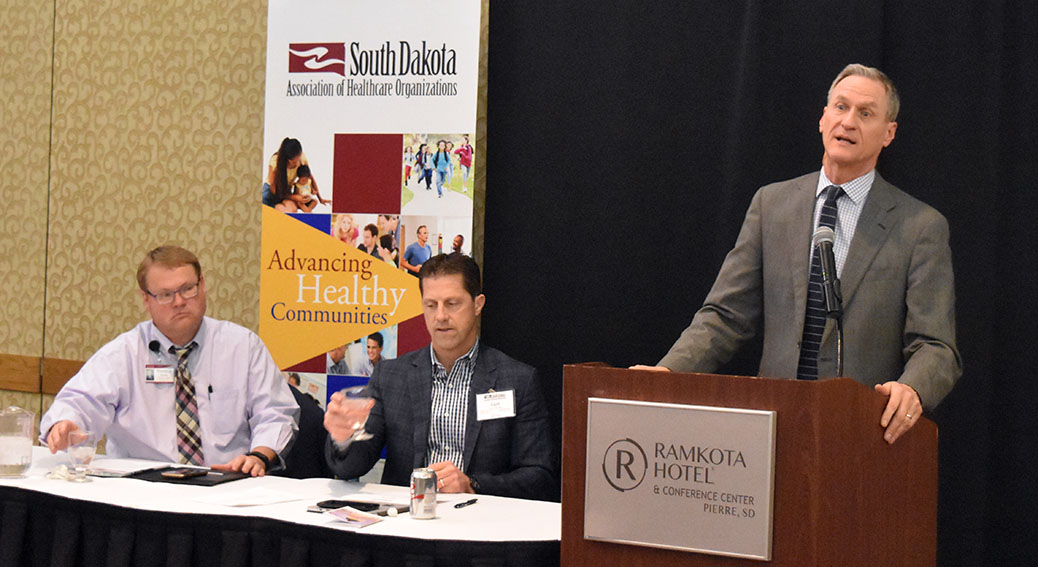More than three dozen hospital and post-acute administrators met in Pierre Tuesday for a SDAHO All-District Meeting that featured a budget update from Gov. Dennis Daugaard.
Daugaard’s initial budget proposal for Fiscal Year 2018 included a 1.0 percent Inflationary update for South Dakota health care providers along with targeted rate adjustments. But sales tax revenues are lagging behind earlier projections by as much as $28 million, and the shortfall is hampering some of the governor’s initial plan.
“It’s probably going to more like zero,” Daugaard said of the inflationary update.
South Dakota already is dealing with a Medicaid shortfall of nearly $70 million for hospitals and more than $30 million for nursing homes.
SDAHO President/CEO Scott A. Duke said providers cannot limit or freeze their costs of delivering services to Medicaid patients and residents, and he asked members with legislators on the Joint Appropriations Committee to reach out to lawmakers and urge them to at least maintain current rates.
Both Daugaard and Duke emphasized that equity should be maintained whereby no group of providers receives an update at the expense of another.
Daugaard, a member of the Republican Governors Association, also addressed issues on the national level. He and other Republicans are working together to find the best way forward in light of the Trump administration and Congress moving forward with the repeal and replacement of the Affordable Care Act (ACA).
The governor said the administration and Congress want to reform Medicaid and move the program from a federal/state share to a fixed-dollar block grant or per-beneficiary allocation. He said if the federal government is going to shift risk to the states, it should also shift the decision making to the states.
“States have to live within the dollars available,” he said.
Daugaard added that the federal government should also address the issue of how Medicaid pays for services for Native American residents who can’t get services from Indian Health Service (IHS) facilities, and states should neither be rewarded nor penalized for their decisions to expand or not expand Medicaid.
“That would be inequitable,” he said.







